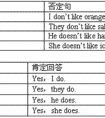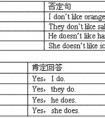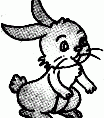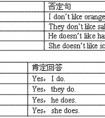句型转换。1. This is my pencil case. (改为一般疑问句) _________________________________________________________________2. My name is Lisa Green. (对画线部分提-六年级英语
We have spent many happy Sundays there. 我们在那儿度过了许多个愉快的星期日。
There are five Henrys in our school. 我们学校有五个亨利。
三、另外,物质名词在通常情况下不能分为个体,所以它通常是不可数的。
但是,在某些特殊情况下(如表示种类等),有些物质名词也可以连用不定冠词或用复数形式。如:
Will you have tea or coffee? 你喝茶还是喝咖啡?
Two coffees, please! 请来两杯咖啡!
再如,抽象名词是表示事物性质、行为、状态、感情等抽象概念的,因此它通常是不可数的。
但是,有时抽象名词也可转化为具体名词,表示具有某种性质的人、事物或行为(可数)。如:
She did this out of kindness. 她这样做是出于好心。(指抽象意义)
He has done me many kindnesses. 他对我很关心。(指好意的行为)
名词复数的变化规律:
1. 名词复数的规则变化
(1) 一般情况加词尾 -s,如 book / books, desk / desks等。
其读音规则是在清辅音后读[s],在元音和浊辅音后读[z]。
(2) 以 s, x, z, sh, ch 等结尾的名词,通常加词尾 -es:bus / buses, box / boxes, dish / dishes等。
(3) 以y 结尾的名词,其复数构成要分两种情况:
以“辅音字母+y”结尾的名词,将 y 改为 ies;
以“元音字母+y”结尾的名词,直接加词尾-s:city / cities, toy / toys, holiday / holidays 等。
2. 复数规则变化的几点说明
(1) 以 ch 结尾的名词变复数时加词尾-es,指的是 ch 读音为[tF]时;
若ch的读音为[k],则其复数应加词尾-s,如 stomach[tstQmEk]是 stomachs,而不是 stomaches。
(2) 以y结尾的专有名词,直接加词尾s变复数。如:
There are two Marys in our class. 我们班在两个玛丽。
(3) 以 o 结尾的名词,有些加词尾 -s,有些加-es,
但在中学英语范围内,以o结尾的名词变复数加词尾-es 的主要有以下4个:tomato(西红柿),potato(土豆),hero(英雄),Negro(黑人)。
注:有些以o 结尾的名词在变复数时加-s或-es均可,如zero / zero(e)s(零)等。
(4) 以 f 或 fe 结尾的名词,也有两种可能:即有些直接加词尾-s,有些则把 f / fe 改为 ves:roof / roofs(屋顶),knife / knives(小刀)等。
但在中学英语范围内,要改 f / fe 为 ves 的只有以下10个词(它们都是日常生活中的常用词):
wife(妻子),life(生命),knife(小刀),leaf(树叶),thief(贼),half(一半),self(自己),shelf(架子),loaf(面包),wolf(狼)。
注:中学英语中的handkerchief(手帕)在变复数时有两种形式:
handkerchiefs / handkerchieves,但在现代英语中,以用 handkerchiefs 为多见。
3. 单数与复数同形的名词。这类名词不多,主要的有:
sheep 绵羊
fish 鱼
deer 鹿
Chinese 中国人
Japanese 日本人
Portuguese 葡萄牙人
Swiss 瑞士人
aircraft 飞行器
means 方法
series 系列
head (牛等的)头数
works 工厂
注:
(1) fish 有时也用 fishes 这样的复数形式,尤其是表示种类时;
head 若不是表示牲口的“头数”,而是表示“人的头”或“人数”,则要用 heads 这样的复数形式。
(2) 由汉语拼音形式出现的名词,其复数与单数同形,如 fifty yuan(5元),thirty fen(3角),five li(5里),ten mu(10亩)等。
4. 名词复数的不规则变化。有的名词单数变复数时,没有一定的规则,需特别记忆:
man / men 男人
woman / women 女人
child / children 小孩
tooth / teeth 牙齿
foot / feet 脚
goose / geese 鹅
mouse / mice 老鼠
ox / oxen 公牛
注:
(1) 一些以 man, woman 结尾的合成词,在构成复数时与 man, woman 的变化形式相同,
如:policeman / policemen(警察), Englishman / Englishmen (英国人),等等。
但是 human(人),German(德国人),Walkman(随身听)不是合成词,它们的复数要按一般规则变化,即为 humans, Germans, Walkmans,而不是 humen, Germen, Walkmen。
又如Bowman是姓,其复数是Bowmans,不是 Bowmen。
(2) foot表示“英尺”时,其复数可以有两种形式 feet / foot,
如:He is about six feet [foot] tall. 他大约6英尺高。
5. 复合名词变复数的方法。复合名词变复数通常是将其主要名词变为复数:
passer-by / passers-by 过路人
looker-on / lookers-on 旁观者
若没有主要名词,则通常在最后一个词尾加s:
know-all / know-alls 万事通
对于由man / woman用于另一名词前构成的合成名词,则需将两者变为复数:
man nurse / nurse doctors 男护士
woman lawyer / women lawyers 女律师
考点名称:疑问代词
- 疑问代词:
在句子中用来构成特殊疑问句,主要用于询问“何人”、“何事”、“什么”。
常见的疑问代词如下表所示:
疑问代词
替代范围
who
人
whom
人
whose
人
which
人、事、物
what
事、物
考点名称:否定句
- 否定句:
表示否定的句子。必须有否定词。
否定句的构成形式:
a. 谓语为be动词时,“be+not "一名学生。
b. 谓语为实义动词而且没有情态动词和助动词时,“do/ does/ did+not"构成否定。
例:I do not like dancing. 我不喜欢跳舞。
He does not want to go to school. 他不想去上学。
c. 谓语为“情态动词+实义动词”时,“情态动词+not”构成否定。
例:You must not smoke. 你千万不要吸烟。
I can not catch it. 我抓不住它。 - 否定句在英语语法中可以分为九类:
(1)一般否定句
I don't know this. No news is good news.
There is no person(smoking)/not a person/not any person(smoking)in the house.
(2)特指否定
He went to his office, not to see him.
I am sorry for not coming on time.
I don't think/believe/suppose/feel/imagine you are right.
(3)部分否定
All the answers are not right
All is not gold that glitters
I don't know all of them.
I can't see everybody/everything.
Both of them are not right.
(4)全体否定
None of my friends smoke.
I can see nothing/nobody.
Neither of them is right.
Nothing can be so simple as this.
(5)延续否定
You didn't see him, neither/nor did I.
You don't know, I don't know either.
He doesn't know English, let alone/to say nothing of/not to speak of(更不用说)French.
(6)半否定句
We seldom/hardly/scarcely/barely hear such fine singing.
I know little English. I saw few people.
(7)双重否定
You can't make something out of nothing.
What's done cannot be undone.
There is no sweet without sweat.
No gain without pains.
I can't help /keep/ laughing whenever I hear it.
No man is so old but(that)he can learn.
(8)排除否定
Everyone is ready except you.
He did nothing but play.
But for your help, I couldn't do it.
(9)加强否定
- 最新内容
- 相关内容
- 网友推荐
- 图文推荐
| [家长教育] 孩子为什么会和父母感情疏离? (2019-07-14) |
| [教师分享] 给远方姐姐的一封信 (2018-11-07) |
| [教师分享] 伸缩门 (2018-11-07) |
| [教师分享] 回家乡 (2018-11-07) |
| [教师分享] 是风味也是人间 (2018-11-07) |
| [教师分享] 一句格言的启示 (2018-11-07) |
| [教师分享] 无规矩不成方圆 (2018-11-07) |
| [教师分享] 第十届全国教育名家论坛有感(二) (2018-11-07) |
| [教师分享] 贪玩的小狗 (2018-11-07) |
| [教师分享] 未命名文章 (2018-11-07) |





![____ it got four wheels?[ ]A. Have B. There C. Has-五年级英语](http://www.00-edu.com/d/file/ks/4/1/65/2019-08-31/small2ca0aeba76320ba6f81e40fe83a0e8111567199443.png)
